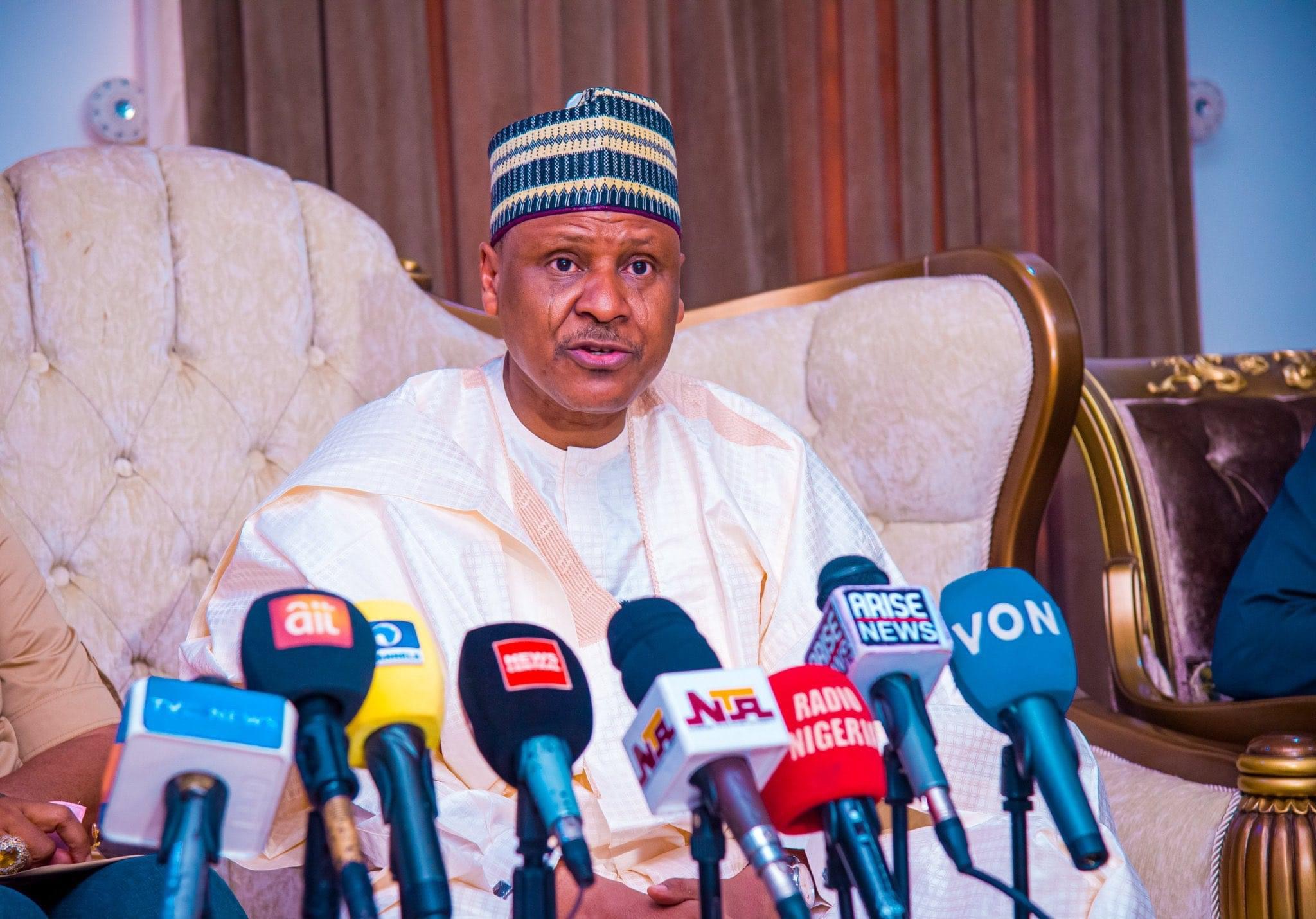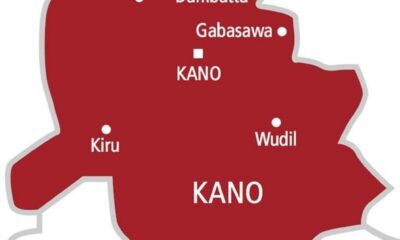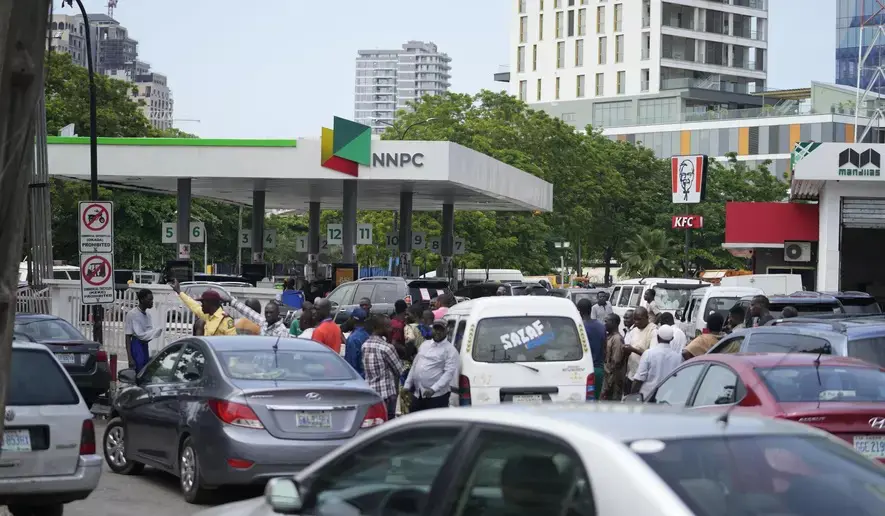Business
Binance Will Face All Due Process On Charges Of Severe Financial Crime – FG
Published
10 months agoon
By
Ekwutos Blog
- Against the backdrop of continuing interest in the ongoing trial of rogue online platform, Binance, and one of its Chief Executives, who illegally trade in cryptocurrency in Nigeria, the Minister of Information and National Orientation, Mohammed Idris, has said due processes are being applied in all stages of the trial by the laws of the Federal Republic of Nigeria.
“At all stages, due process has been followed, and prosecutors are confident of their case, based on the facts and evidence gathered. Binance will have every opportunity to defend itself in court against these severe charges of financial crimes against the Federal Republic of Nigeria. The next hearing is on June 20, 2024,” Idris said.
The Minister explained that Binance, the defendant, has received consular access and all due care, following normal diplomatic protocols and the rule of law, adding that the judge in the case has sufficiently posited that bail was denied because of the flight risk, after a co-accused, now the subject of an Interpol warrant, illegally absconded.
It would be recalled that Binance had a turnover in Nigeria of over US$20 billion in 2023 alone, far above the federal budget for health and education, fueling currency speculation and the cost-of-living crisis. In addition, it is not registered in Nigeria and neither has it ever paid any taxes within the Nigerian jurisdiction, having all the while operated without oversight or any of the normal guard rails to flag criminal activity.
Idris said it is important that Binance is prefaced as an entity whose representatives have been variously imprisoned, fined, sanctioned, and banned in North America, Europe, and Asia, in recent years.
“Changpeng Zhao, the billionaire co-founder and former CEO of Binance is currently serving a four-month prison sentence in the United States after being found guilty of money laundering, while Binance has openly accepted its role in facilitating terrorism, corruption, sanctions busting, and in aiding and abetting paedophile gangs.
“Law enforcement agencies believe Binance operations in Nigeria are part of a broader international pattern. It will be for the courts here, as in other jurisdictions, to hold the company and its executives accountable,” Idris said.
You may like


Trump’s tariffs: Why won’t countries buy US meat products?


JUST IN: Niger Republic Dumps French, Adopts Hausa As National Language


Trump moves to restore some terminated foreign aid programmes


Two women drown, die in Kano puddle


Congo Frees Jailed Americans After Failed Coup, Hands Them Over to U.S.


INEC Chairman, Mahmood not sacked – Spokesman
Business
FCCPC Urges Nigerians to Report Harassing Loan Apps and Businesses
Published
2 days agoon
April 7, 2025By
Ekwutos Blog
The Federal Competition and Consumer Protection Commission (FCCPC) is advising Nigerians to report any loan apps or businesses that engage in harassing behavior over unpaid loans.
According to the FCCPC, no consumer should live in fear of harassment or intimidation.
Ekwutosblog gathered that Consumers can file complaints with the FCCPC through their website or contact their customer service hotline.
The FCCPC is responsible for protecting consumer rights and promoting fair competition in Nigeria.
FCCPC has taken steps to regulate digital money lenders and enforce consumer protection laws, including fining Meta and WhatsApp $220 million for violating the Federal Competition and Consumer Protection Act (FCCPA) and the Nigeria Data Protection Regulation (NDPR)
To file a complaint, follow these steps
Visit the FCCPC website and fill out the complaint form. Provide detailed information about the harassment, including dates, times, and communication records. Submit supporting documents, such as screenshots or messages. FCCPC Website: https://fccpc.gov.ng/ Customer Service Hotline: 0805 600 2020, 0805 600 3030
Email: mailto:contact@fccpc.gov.ng
Business
Chief Vincent Obianodo is the Founder of Young Shall Grow Group, a leading transportation company in Nigeria.
Published
2 days agoon
April 7, 2025By
Ekwutos Blog
Chief Vincent was Born in Neni, Anambra State, He spent his early life in his hometown after which he moved to Kano state where He learnt how to fix punctured tyres (vulcanizer), and became perfect at it (a time when few people could do it), because of it he had a lot of customers queuing for his vulcanizing services.
He did the job for more few years before he decided to go into the transportation business as a bus conductor. He continued the bus conductor job until 1972 when he had gathered enough money to buy his bus. After acquiring maximum knowledge on how the transportation business works, he then decided to stop working as a bus conductor and he acquired a mini-bus to ply the Enugu to Onitsha route.
In 1973 he relocated his business operations from Onitsha to Lagos and ventured into a more developed transport business, which he started with two locally built Mercedes Benz 911 buses. After seven years of operating in Lagos, the number of buses he owned increased from 2 to 40 alongside his transport business. He also engaged in the delivery of goods which also boosted the success of his business.
His exceptional customer service delivery got many people to patronize his business and by 1978, he decided to expand by opening up a new interstate route, plying from Lagos to Onitsha to Owerri. He also bought a Mercedes Benz 0362 luxury bus for this purpose. This expansion gained his business more fame and within 6 years, his number of buses grew to 150. Owing to the success of the business, Chief Vincent Incorporated his business in 1984 so he could fully cover every possible part of Nigeria, as a leading inter-state luxury bus company.
Today, The Young Shall Grow Motors is one of the largest luxury bus companies in Nigeria with over 500 buses that ply almost every route in Nigeria as well as other west African countries like Ghana, Burkina Faso, Mali and The Benin Republic.
He also has businesses in the Hospitality, Oil and Gas, Real estate sectors.
From Vulcanizer to millionaire in dollars, today his net worth is over 300 million dollars.
Business
Dangote refinery, NNPC: More fuel stations increase pump price in Nigeria
Published
5 days agoon
April 4, 2025By
Ekwutos Blog
The price of Premium Motor Spirit, popularly known as fuel, has recorded a significant increase in the past days, which may worsen the economic hardship Nigerians face.
MRS, a filling station partner of Dangote Refinery, kicked off the latest fuel price increase when it adjusted its petrol pump to between N925 and N950 per litre in Lagos and the Federal Capital Territory, Abuja.
Similarly, other fuel marketers such as Empire Energy, Recoil, Juda Oil, Total, Emedab, and others also increased their fuel pump to between N950 and N970 per litre.
On Wednesday, the Nigerian National Petroleum Company Limited retail outlets also jacked up their fuel price to N950 per litre from N880 in Abuja.
Summarily, Ekwutosblog observed motorists will have to pay N70 more to buy a litre of petrol in the coming days.
The development comes amid the suspension of petrol product sales in Naira by Dangote Refinery. This follows the initiation of the naira-for-crude sale deal between Dangote Refinery and the federal government through NNPCL.
On Wednesday, President Bola Ahmed Tinubu announced a reshuffling of NNPCL.
Meanwhile, local oil prices are increasing in Nigeria, despite the decline in global crude prices. As of the time of this report, United States West Texas Intermediate was at $62.15 per barrel, down from above $65, while Brent crude stood at $65.42 per barrel, down from $72 last week.

Trump’s tariffs: Why won’t countries buy US meat products?

JUST IN: Niger Republic Dumps French, Adopts Hausa As National Language

Trump moves to restore some terminated foreign aid programmes
Trending

 Trending6 months ago
Trending6 months agoNYA demands release of ‘abducted’ Imo chairman, preaches good governance
- Business6 months ago
US court acquits Air Peace boss, slams Mayfield $4000 fine

 Politics6 months ago
Politics6 months agoMexico’s new president causes concern just weeks before the US elections
- Entertainment6 months ago
Bobrisky transferred from Immigration to FCID, spends night behind bars
- Entertainment6 months ago
Bobrisky falls ill in police custody, rushed to hospital

 Politics6 months ago
Politics6 months agoRussia bans imports of agro-products from Kazakhstan after refusal to join BRICS

 Politics6 months ago
Politics6 months agoPutin invites 20 world leaders
- Politics1 year ago
Nigerian Senate passes Bill seeking the establishment of the South East Development Commission.

